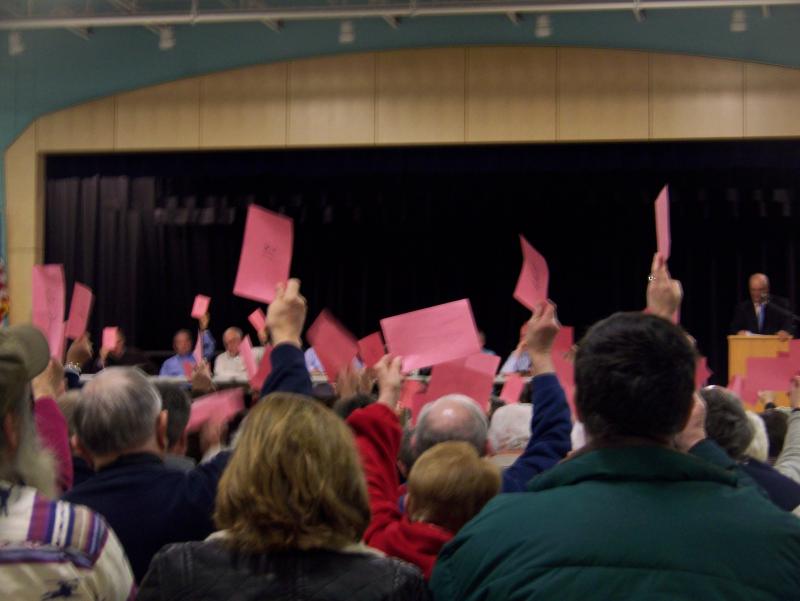No Preservations: Rochester rejects CPA
Voters overwhelmingly rejected placing a question on the spring town election ballot which would allow a 1.5 percent Community Preservation Act tax on residents’ annual tax bills.
Town Moderator Woody Hartley said the final count was 180 to 60 in favor of defeating the article. A simple majority was needed to put it before the entire town at the next election.
In 2006 voters at Town Meeting defeated the same question by a narrow 26-vote margin.
The tax would have allowed the creation of a pool of funds to be used for open space preservation, athletic field and playground rehabilitation and renovation of community housing and historical preservation projects.
Many said they opposed the act because it would raise taxes.
“I think that sometimes the right thing to do is to just not do anything,” said Arnie Johnson. Chair of the Planning Board, Johnson said residents are grappling with increases to heating, tax and health care bills.
“We need to do the right thing. We need to let people recover and let them keep some of their money for now,” he said to applause.
According to the state, seniors who qualify as low or moderate income would be exempted from the tax as would low income residents. The first $100,000 of everyone’s property value would also be exempt.
While act supporters said money set aside through the law would be used to preserve open space, Johnson said Rochester’s record on conservation is excellent.
“I’ve never seen us turn down great open space projects,” he said.
Ryan Motta said the proposed increase was small, but the number of groups looking for more money seemed to multiply each year.
“It’s just a one percent. It’s just a little bit more, but the problem is there are one hundred people doing this year after year. The best I can do at Town Meeting is say, ‘at least I didn’t spend more money,’” he said.
Norene Hartley, a board member of the Rochester Land Trust, reminded voters that approving the measure did not put the act into effect. She asked residents to let everyone weigh in on the act.
“We may be missing voters who were unable to get babysitters, or older voters who don’t drive at night,” she said. “I ask you to vote ‘yes’ to bring it to all voters in town.” Supporters noted the act brings in money through a matching grant. Last year, for every dollar the town saves the state would have matched it with 27 cents. This year, that figure rose to 52 percent.
However, Planning Board member Ben Bailey said Rochester was “in good company” by not passing the measure.
He said in the past two years no town or city in the state has adopted the act. On the state’s matching grant, Bailey took issue with supporters who said it was essentially an investment, where the money returned could be viewed as interest.
“An investment is something where someone pays me not out of my own pocket, but out of their own pocket,” he said.













